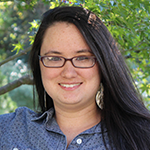How We Treat Depression
Learn more about how we treat depression in teens and depression in adults. Our residential treatment programs are our most intensive level of care for adults and adolescents with depression. Our day treatment program for depression may be an appropriate next step for adults not making progress in outpatient therapy.
Skyland Trail has expertise in treating individuals with complex diagnoses including treatment-resistant depression, persistent depressive disorder, depression and psychosis, depression and anxiety, or depression and borderline personality disorder.
DEPRESSION IN ADULTS
18 AND OLDER
DEPRESSION IN ADOLESCENTS
14-17 YEARS OLD
What is Depression?
Major depressive disorder, also called major depression or unipolar depression, is a serious mood disorder. The symptoms of major depression can seriously interfere with a person'a ability to handle daily activities, relationships, or work or school responsibilities. Depression is common. It affects about 6.7 percent of U.S. adults in a given year. And it can affect anyone—even a person who appears to “have it all.”
Depression can occur at any age, but first symptoms often appear in adolescents or young adults in their 20s and 30s. Some individuals experience depression when they are young, have a period of remission, and then begin to experience depression again later in life.
Researchers have discovered a link between depression and other serious illnesses like heart disease, diabetes, cancer, thyroid disease, and Parkinson's disease. A complete physical and labwork is an essential part of the diagnostic assessment at Skyland Trail.
Christina M
"I'm 27 years old. I have struggled for most of my life with major depressive disorder and generalized anxiety...

Christina completed the psychiatric program at Skyland Trail, and now uses her recovery experience to help others as a certified peer specialist.
More Client StoriesSigns and Symptoms of Depression
Some of the most common signs and symptoms of clinical depression are:
- Feelings of sadness, guilt, hopelessness, or worthlessness
- Insomnia or excessive sleeping
- Irritability or restlessness
- Loss of interest in activities or relationships
- Thoughts of suicide
- Change in appetite often resulting in over- or under-eating
- Low energy
- Difficulty concentrating
- Psychomotor changes
Causes of Depression
Like most mental illnesses, scientists believe depression is caused by a combination of genetic and environmental factors. For individuals with a genetic predisposition for major depression, experiencing stress can trigger the development of symptoms.
For teens, stress can come from:
- academic pressures
- expectations to excel in sports or other activities
- peer pressure
- changing bodies and hormones
- bullying
- loss of important relationships
- trauma or abuse
For adults, stress can come from:
- death of a parent
- becoming a parent
- losing a job
- experiencing divorce
- trauma or abuse
Effective Treatments for Depression
- medication
- psychotherapy
- exercise
- sleep regulation
At Skyland Trail, we tailor the treatment plan to each individual so that they receive the best care for their specific mental health needs.
Speak to a counselor at Skyland Trail to learn more about the symptoms and signs of clinical depression and to learn more about treatment options.

